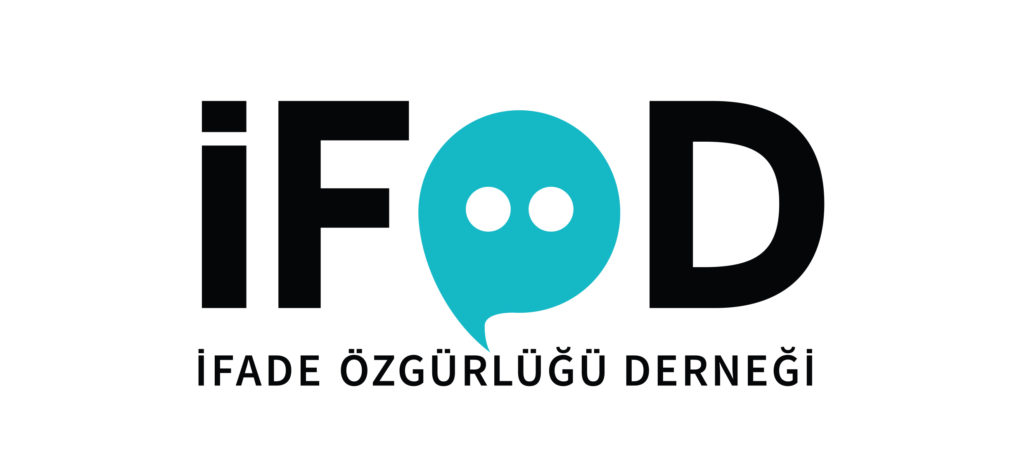Fahrenheit 5651: The Scorching Effect of Censorship
EngelliWeb 2020
Analysis Report on blocked websites and blocked and removed news articles, social media accounts and social media content from Turkey
Press Release
19 October, 2021
EngelliWeb 2020 Report of İFÖD has been published in English
The 2020 EngelliWeb Report of the Freedom of Expression Association (“İFÖD”) written by Yaman Akdeniz and Ozan Güven is a continuation of the EngelliWeb 2018 and 2019 reports and is named Fahrenheit 5651: The Scorching Effect of Censorship, referring to Ray Bradbury’s famous novel Fahrenheit 451, which was published in 1951, describing an oppressive, authoritarian, and dystopian society in which books are burned. This report (https://ifade.org.tr/reports/EngelliWeb_2020_Eng.pdf) focuses on the burning and destructive effect of the amendments made to the Law No. 5651 as a result of increasing pressure especially in 2020 and during the COVID-19 pandemic and Internet censorship practices, which have been increasing gradually along with these amendments. Our purpose is to ensure that the burning effect and damage of censorship are not completely erased from the collective memory and to document the extent of censorship, as in previous reports.
According to the 2020 Report, access to 467.011 websites was blocked from Turkey by the end of 2020 with a total of 408.808 separate orders issued by 764 separate institutions including criminal judgeships of peace and other authorised public institutions. Furthermore, the report highlights that 150.000 URLs, 7.500 Twitter accounts, 50.000 tweets, 12.000 YouTube videos, 8.000 Facebook content items, and 6.800 Instagram content items were blocked subject to Law No. 5651 and other legal provisions by the end of 2020.
So far as 2020 is concerned, access to a total of 58.809 websites and domain names was blocked in 2020. The vast majority of the blocking orders, orders regarding 52.185 domain names (89%), were issued by the President of the Information Technologies and Communication Board subject to article 8 of Law No. 5651. It is determined that 3.025 domain names were blocked with orders issued by the criminal judgeships of peace, public prosecutors’ offices, and by the courts, 1.615 domain names were blocked by the Capital Markets Board, 1.428 domain names were blocked by the Ministry of Health and the Turkish Medicines and Medical Devices Agency, 234 domain names were blocked by the Directorate of Spor Toto Organization, 128 domain names were blocked by the Directorate General of National Lottery Administration, 96 domain names were blocked by the Ministry of Agriculture and Forestry, 88 domain names were blocked by the Directorate of Tobacco and Alcohol, 4 domain names were blocked by the Association of Access Providers, 3 domain names were blocked by execution offices, 2 domain names were blocked by the Jockey Club of Turkey (“TJK”) and 1 domain name was blocked by the Banking Regulation and Supervision Agency (“BDDK”).
Total Statistics of Blocked and Removed News Articles (URL) – 2020
The personal rights violations related URL-based access blocking measure came into force in February 2014 with the amendment of article 9 of Law No. 5651. As of 31 December 2020, it was determined as part of the EngelliWeb project that a total of
22.554 news articles (URL-based) were blocked in accordance with article 9 by 5.136 separate orders issued by 468 separate criminal judgeships of peace. The number of URLs blocked was 519 in 2014, 1.260 in 2015, 1.991 in 2016, 2.553 in 2017, 4.886 in 2018, and 5.700 in 2019 and 5.645 in 2020. It was also found that 15.832 of 22.554 blocked URLs were deleted or removed by content providers.
During 2020, it was found that 5.645 news articles (URL) were blocked subject to a total of 819 separate decisions issued by 236 separate criminal judgeships of peace subject to article 9 of the Law No. 5651. 4.620 of those 5.645 articles (81%) were removed from publication by content providers (news websites) after they were blocked.
In 2020, the top 4 news websites with the highest number of blocked news articles remained the same as in 2019, and daily newspaper Hürriyet ranked first in this category with 384 news articles. Hürriyet removed 382 (99%) of those blocked news articles from its website. Hürriyet was followed by the news website Haberler.com with 267 blocked news articles. Haberler.com removed 265 (99%) of the 267 blocked news articles from its website. Daily newspaper Sabah ranked third with 248 blocked news articles. Sabah removed 231 (93%) of those blocked news articles from its website. The website of daily newspaper Milliyet ranked fourth with 220 blocked news articles. Milliyet removed 216 (98%) of those blocked news articles from its website. In this category, the fifth rank was occupied by the news website Sondakika.com with 163 blocked news articles. Sondakika.com removed 162 (99%) of those blocked news articles from its website. While the number of blocked news articles on news websites such as OdaTV, T24, Cumhuriyet, Yeni Akit, and Birgün decreased compared to 2019; the website Tarımdan Haber, which was not included on the list in 2019, made the list in 2020, ranking tenth with 136 blocked news articles. The website removed all the blocked news articles from its website (100%).
The content removal rate increased following the amendments made to the Law No. 5651 in July 2020, and the average content removal rate, which was around 76% in 2019, increased to 81% in 2020. This rate is expected to increase further in 2021.
Total Statistics of Blocked and Deleted News Articles (URL-based) 2014-2020
Since the URL-based access blocking measure due to personal rights violations came into force in February 2014 with the amendment of article 9 of the Law No. 5651, it was determined that as of end of 2020, a total of 22.554 news articles (URL-based) were blocked and 15.832 news articles (URL) were deleted or removed. These URLs were blocked subject to 5.136 separate orders issued by 468 separate criminal judgeships of peace. While 2019 ranked first with a total of 5.700 blocked news articles, 2020 was the year when the highest number of news articles (4.620 news articles) were deleted or removed. Overall, 70% of the blocked news articles were removed.
By the end of 2020, Hürriyet ranked first in the category of “news websites with the highest number of blocked news articles (URLs)” with 2.251 blocked news articles, and Hürriyet was followed by Sabah with 1.376 blocked news articles. While Cumhuriyet ranked third with 986 blocked news articles, Sözcü ranked fourth with 918 blocked news articles, and T24 ranked fifth with 915 blocked news articles.
Moreover, by the end of 2020, Hürriyet came out on top also in the category of “removed and deleted news articles” by removing or deleting 1.936 (86%) of its 2.251 blocked news articles. Hürriyet was followed by Sabah, which removed or deleted 934 (68%) of its 1.376 blocked news articles, and T24, which removed or deleted 884 (97%) of its 915 blocked news articles. Takvim, which removed or deleted 577 (79%) of its 728 blocked news articles, ranked fourth, while OdaTV, which removed or deleted 549 (98%) of its 560 blocked news articles, ranked fifth. Haberler.com, which was in the top five until the end of 2019, ranked sixth by removing 546 (96%) of its 568 blocked news articles in 2020.
The 2020 EngelliWeb Report also includes assessment of Turkey through the transparency reports published by Twitter, Facebook, Google, WordPress, Reddit, TikTok and LinkedIn. The Report also includes statistical information on investigations into social media accounts as well as legal action taken in relation to such accounts during 2020.
In brief, in the 15th anniversary of Law No. 5651, the complex Internet Censorship Mechanism of the state is alive and kicking and evolving actively and vigorously as never before. In 2020, RTUK started to exercise its authority regarding the Internet. During the COVID-19 outbreak, steps were taken to “turn the crisis into an opportunity” and to take better control of social media by ensuring that social media platforms have legal representatives in Turkey. While a detailed evaluation of the steps taken in 2020 will be assessed in detail in our 2021 report, the burning and destructive effect of the reinforced censorship and control mechanism will continue in the coming years.
Information About the Press Release
Fahrenheit 5651: The Scorching Effect of Censorship report was prepared by Professor Yaman Akdeniz (Faculty of Law, İstanbul Bilgi University) and Expert Researcher Ozan Güven.
Web Address of the Report: https://ifade.org.tr/reports/EngelliWeb_2020_Eng.pdf
İFÖD Web Address: https://ifade.org.tr
İFÖD Twitter Address: @ifadeorgtr EngelliWeb Twitter Address: @engelliweb
Reference: İFÖD, Fahrenheit 5651: The Scorching Effect of Censorship, October 2021, ISBN: 978-605-69446-5-9,
https://ifade.org.tr/reports/EngelliWeb_2020_Eng.pdf
İfade Özgürlüğü Derneği (İFÖD – Freedom of Expression Association) has been set up formally in August 2017 protect and foster the right to freedom of opinion and expression. The Association envisions a society in which everyone enjoys freedom of opinion and expression and the right to access and disseminate information and knowledge.



